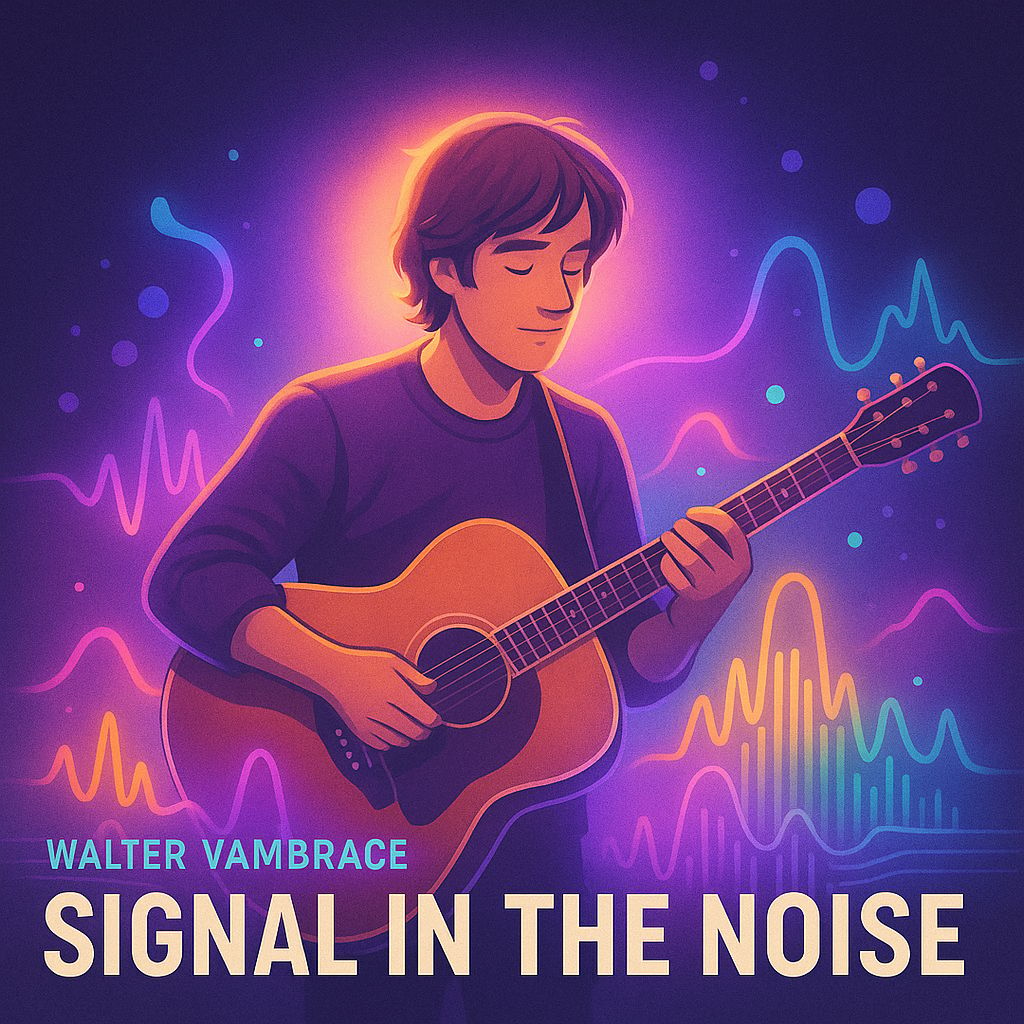- (vam)Brace Yourself
- Posts
- 25) Incorporation & Strategic Operating Paradigm
25) Incorporation & Strategic Operating Paradigm
Whatever that means!
Behind-the-scenes building Vambrace AI, a company on a mission to figure out its mission. Please pardon the stream-of-consciousness style. Subscribe to follow along or visit the site here:
(typos are to make sure you’re paying attention)
Introductory Remarks
Dear Vambracers —
In last week’s post, Value Compression, we explored labor’s shifting perceived economic value. Broadly speaking, I claimed that the cost associated with white collar work—as measured by organic and/or artificial intellectual compute—is decreasing rapidly. As costs decline, every market participant must decide how we split the spoils of this new economic surplus. My personal strategy is to give the majority of the surplus back to my customers, and then make speed, quality, and cost the business-end of my sales-trident. I also think that, in a world where white collar work can cost multiple millions of dollars, I can give significant savings back to my customers while still carving out a good foundational economic base for myself and the business. And that leads us into today.
Incorporation
I officially incorporated the company this past Wednesday! So, as of November 5th, 2025, I am responsible for stewarding the mission of, and maximizing shareholder value for: Salterton Technologies, Inc. (a dba for Vambrace AI is forthcoming). A couple silly yet pseudo-important considerations worth noting:
Structure. I filed as a Delaware C Corp. I’ve done the whole LLC vs C Corp dance in the past, and I’m pretty clear-eyed about the potentially-burdensome regulatory, tax, and organizational requirements for a C Corp. But I’ve just had several negative and negative-adjacent professional experiences with LLCs—and so I think for me psychologically there was a lot of value in the “, Inc.” I also want to signal, to myself and others, that I’m here to build an enduring and high-growth enterprise. And then, lastly, I get that proper bookkeeping and employee filings and stuff can be annoying in the near-term, when it will still mostly just be me. But I actually kind of flipped that around and figured that I’d actually rather button up the business now when I have some more free time on my hands than in the future when I’ll (hopefully) be busier. So then when the time comes to grow-grow-grow I’ll already have the organizational knowledge and executive-muscle to deal with and/or delegate those tedious, non-value-additive tasks.
Name. I’ve wanted to incorporate as “Salterton Technologies, Inc.” for quite some time now. I got really obsessed with Canadian author Robertson Davies about 2ish years ago, and his first trilogy—the Salterton Trilogy—deeply affected me. The name “Vambrace” comes from that trilogy, with a Vambrace family making recurring appearances there (Walter and Pearl). And then Walter and Pearl of course inform the names of the characters I’ve created in my fictional musical universe, with Walter Vambrace being the singer/songwriter of Signal in the Noise (quick refresher there, with album-cover drop and Walter/Pearl photoshoot below), and Pearl Vambrace being his love interest. More importantly, I think the “…Technologies…” qualifier indicates the broad ambitions of the company (more on that below). Really, I wanted something that I’d be proud to put on an S-1, that had some deeper meaning to me, and that felt sufficiently permissive of possibility (and was expressly non-limiting and non-narrowly-defining).
Signal in the Noise  | Walter & Pearl  |
Strategic Operating Paradigm
That brings us to the strategic operating paradigm with which I’m running the business. I think of things in three sleeves [my parents hate the use of “sleeves” here, but I think it sounds pseudo-avant-garde and sophisticated].
Consulting. This is the current core operating identity of the company. We have a lot of learning to do, and consulting allows for paid apprenticeships. It’s important that we deliver real value and drive real positive outcomes for the companies we work with. And in return we’re compensated for our work and, more importantly, we’re able to develop real relationships with real business-owners—and get deep in the weeds on the fundamental industrial logic of the business. To me, right now, the in-the-weeds exposure to sub ~$250mm market cap businesses is invaluable. I want to build a strong foundation in “hard services” businesses so that I can start to identify automation opportunities somewhat automatically. I also think it’s very enjoyable to build real, long-term, and trusting relationships with customers—and to continue to sharpen my customer service sword. I view this sleeve as the economic foundation upon which we build a scalable and high-growth house.
Consulting Website: Vambrace AI
Incubation. As I build deep relationships with real companies, and work to solve real problems for them, I’m optimistic that there will generalizable tools that I can package up into recurring software products that I can market to similar businesses in non-competitive territories. I’m trying to aim for maybe 3-4 per year here, and will only build them out if certain criteria are met (those criteria to be determined in the future). With AI, it’s never been easier to spin up sophisticated landing pages and get MVPs live, and so I’m trying to take advantage of that as I continue to build. I also think that I do have to put some of my chips on scalable bets, (where labor isn’t the product), and that there will be opportunities for that here.
Incubation #1: Interloc (short for “interlocution”)
Ownership. It’s no secret that private equity rollups of traditional hard-services businesses are particularly in vogue right now—and for good reason. As boomers retire, there are multiple trillions of dollars available for transfer in industries that have been relatively insulated from technological disruption over the last ~three decades. PE firms have been running similar playbooks for quite some time now to roll up these types of businesses. I still think there’s opportunity to identify overlooked categories and/or move more nimbly than “incumbent PE-owned firms” or something, and create an enduring business there.
More specifically, I’m not sure why it’s even necessary to pursue startup-by-acquisition for some of these categories. I understand that what you’re really buying is the customer-book for these companies—and that there’s real value there, and all sorts of economic and psychological rationale around behavioral inertia—and I get all of that. But I’m starting to think pretty deeply (if I do say so myself) about what an AI-native hard services business would look like, if you were to start it today. And I don’t see why you couldn’t raise capital from traditional PE-type-returns-seeking financial sponsors to spin up a fresh company, purchase the service assets secondhand at a discount, and then build an AI-native back office from the start. If you can then operate at, say, 25% of the fixed cost structure traditionally borne by similar businesses in the industry, then you could seriously undercut prices and, hopefully, really supercharge organic customer acquisition and pretty quickly scale and hopefully destroy all competitive businesses by winning over all their customers. I believe that this strategy really would work for “commodity hard-services” businesses.
I also think more generally this starts to embody my more positive and surplus-y outlook for AI. The traditional PE rollup playbook is to buy these businesses with some sort of fundamental competitive moat (i.e., geography, customers, reputation, etc.), and then cut costs (i.e., chop heads), and ramp up prices for customers. This expands EBITDA margin and then you probably get a premium on the EBITDA multiple at which you purchased the business, so you get a higher multiple on a higher EBITDA and you finance the initial acquisition with 50-80% debt and voila! wealth, success, and acclaim.
But I am skeptical that this playbook will obtain in an AI-first world, particularly as the cost of doing business really should drop dramatically. And so I think market participants, like me, will (hopefully) put some competitive pressure on legacy PE rollups to actually pass on savings from AI to consumers—leaving them better off. And then this all gets back to the nakedness of the emperor governing the intellectual-services-labor empire that we’ve collectively erected over the past 70-80 years. But that’s a good thing!
If we ever want to be a perfectly-circular and self-sustaining society full of leisure and play and self-actualization, then we have to start passing surplus back to consumers. Or else they’ll keep protesting the construction of the data centers that we so desperately need.
I just really want us to unmoor our vessels from the dilapidated shoreline of the 20th century so we can let the rising tide of AI lift all of us to a more abundant future. The waters will undoubtedly be choppy, and the tide might be rising faster than we’re comfortable with—but it’s inevitable—and we’d be much better off holding on for dear life and trying to enjoy the ride, together, than looking back regretfully.
I think I’m also realizing that I am both a hardcore techno-optimist and a hardcore subscriber to technological fatalism, and so I guess the confluence of those worldviews informs the foregoing beliefs.
Looking Forward
I’ll be honest, that sort of got away from there at the end. I went into this post really dead-set on crafting a coherent, compelling, and concise outline of how I think about the business of my business. But, alas, the (entrepreneurial) spirit compelled me to type-type-type until I couldn’t type no more.
Have a wonderful week!
[Carveout: recently I’ve been getting Chase for Business ads on YouTube where the whole tagline is: “Chase for Business is literally what it says in the name. It’s Chase, for business.” And every time I hear it I get so annoyed because what is the point?? You’re just repeating the name of the business?? I just don’t get it at all. But, I am talking about it now—and maybe that’s the point? Who knows. Have a great week!!]
Sincerely,
Luke